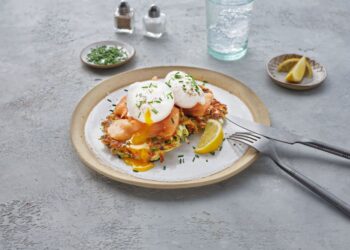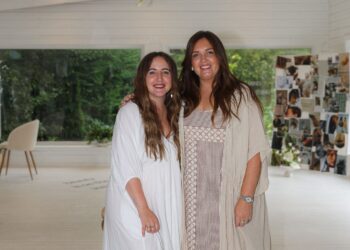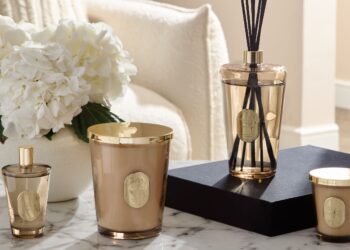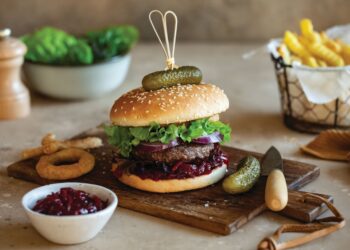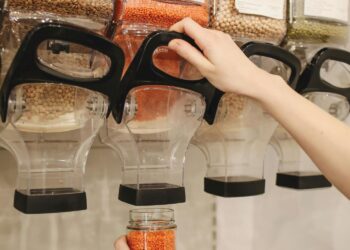Now is a great time to refocus your efforts to cut out single-use-plastics. This challenge will help you eliminate plastics from your home for good

The Plastic Free July challenge is a global movement to help people to create lasting change for the better of our environment. The website has lots of tips and informative articles to explain how and why you should reduce single-use plastics in your home and business.
Each step you can take is explained thoroughly on the website, covering everything from refusing takeaway coffee cups to party decoration alternatives.
Sign up on the website for emails with tips and suggestions, or try to follow our plastic-free challenge this month. In 31 days you will have taken a huge step towards eliminating plastics from your life and home!
31 days to plastic-free:
1. Question every purchase.
Before buying anything new, ask yourself these three questions.
- Do I actually need this?
- Is there an option with less plastic packaging?
- Is there an alternative made from recycled materials?
Chances are there will be a more sustainable solution. It may take a little more effort, cost a little more initially or require some research, but taking that little bit of care and attention will pay off in the long run, for your wallet and for the environment.
2. No more plastic bags
We’ve all forgotten to bring bags to the supermarket before — but now is the time to ensure it doesn’t happen again. Make sure you are prepared with lots of options. Keep a stash of reusable bags in your car boot, and you can find lots of options that are small enough to keep in your handbag. Remember, a reusable bag is only reusable if you remember to bring it.
3. Packaging-free groceries
Choose fruit and vegetables without plastic packaging or plastic bags, or better yet, buy from a farmer’s market. Check neighbourfood.ie for a list of markets throughout Ireland. While the markets themselves remain closed, markets are offering online orders for collections, so keep an eye out for details.
4. Say no to plastic cutlery and straws
Takeaways have become an even more important part of the week since lockdown began, as we all look forward to our weekend treat meal. Make sure to refuse plastic straws and cutlery when ordering. These single-use plastics are used for mere minutes before they are thrown away, and will remain in the environment indefinitely. If you like to use a straw to protect your teeth, try a metal, sillicone or glass alternative that you can reuse. You can buy cutlery kits to keep in your bag, or simply bring your own from home.
5. Bring your own bottle
A reusable water bottle will save you from the expense and waste of buying plastic ones. This collapsible bottle is lighter than metal bottles and will save space in your bag.
6. Bread bags
At the bakery, there really is no need for all that plastic packaging. You can keep bread fresh in a fabric bag, or bring your own container when stocking up on pastries and cakes. If you don’t have something with you, request a paper bag, which you should be able to recycle if it is clean, or add to your compost bin.
7. Brew with care
Make your coffee at home, or check if your local coffee shop has started to allow reusable cups again since lockdown restrictions have eased. If you want to upgrade your coffees at home, check out these home-brewed coffee essentials.
8. Opt out of packaging completely
Discover bulk food shopping, which will drastically reduce the amount of rubbish your household produces. Once you start, you will be hooked, as you will have so much less to deal with on bin day. Bring your own containers to the shop to stock up on grains, legumes, nuts and flour, and then bring containers to your butcher and grocer too, for a packaging-free alternative to supermarket shopping. Here’s a list of zero-waste shops to check out.
9. Embrace pre-loved shopping
Buying less is a great way to cut down on plastics, as is shopping second hand. See if you can find things like furniture or homewares on websites like DoneDeal, Adverts or Ebay for pre-loved items, or search for zero waste communities on Facebook in your area, where people might advertise items they want to get rid of for free or for a low price. You will save on packaging, and save money too.

10. Fuss-free hair removal
Have you ever balked at the price of a new set of heads for your disposable razor? Replace your disposable razor with a stainless steel safety razor. It will be much more affordable in the long term, and there’s no need to be intimidated, it just takes some practise and patience.
11. Sustainable periods
When it comes to periods, the packaging used for applicators, tampons and sanitary items all contain single-use plastics. You’ve no doubt heard of Mooncups, but these days there are lots of reusable alternatives to single-use sanitary items. You can try period underwear and even washable cotton pads and liners. Thinx period underwear is now available in a range of colours and patterns, and with different levels of absorbency to use throughout your period.
12. Handwashing is as important as ever
You have hopefully been washing your hands more than ever, and are aware of how quickly you can go through a bottle of liquid hand soap. Bars of soap are often available in cardboard packaging, and are just as effective for handwashing. Opt for a moisturising soap to ensure hands stay soft. You can also try bar shampoos and conditioners and body washes too, for a plastic-free shower.
13. Brush with bamboo
Every toothbrush you have ever used still exists, as it takes thousands of years for hard plastic to break down. Instead, choose a bamboo toothbrush if you can, as it is more sustainable, and try a plastic-free alternative to dental floss too.
14. Elegant beauty products
A lot of beauty products come in plastic packaging. Instead, choose solid bars or products in recyclable glass bottles. One plus is that they are much more appealing on your bathroom shelf then clashing plastic bottles and tubes.

15. Refill your must-haves
One way to reduce the amount of plastic you buy, without sacrificing your favourite products, is to opt for brands that offer refills. Rituals have refills for their body creams and handwashes, Ouai offers refills for their luxury shampoos and conditioners, and you can refill your favourite eyeshadow palettes from MAC.
16. Plastic-free parties
Decorating at home is half the fun of birthday parties, but did you ever think about how those plastic decorations will remain in the environment forever? Opt for sustainable decorations that you can recycle afterwards, or invest in bunting you can use again and again. It’s also fun to make your own too from old fabrics or scrap paper. Rethink the disposable plates and napkins too, and consider stocking up on child-friendly bamboo options.
17. Rethink your bin bags
Every bag of rubbish you take out of your home has a devastating effect on the environment, not least because of the plastic bag it is in. Instead, try lining your bin with a few sheets of newspaper, using certified compostable bin liners, or using the bin as a ‘naked bin’ and wash it out with each use. Wrap wet items in newspaper to create less mess.
18. On the go
Cling film and zip-lock bags end up in the bin after use. Instead, use glass or metal containers, or natural beeswax wraps and washable cloth bags for food storage and lunches. It’s also good to embrace a good old-fashioned lunch box habit. There are lots of spill-proof, handbag friendly options.
19. Earth-friendly teabags
It’s so hard to wrap the mind around the fact that many of our favourite tea brands use microplastics in every teabag. Make the change to loose leaf tea, or opt for plastic-free tea bags which are also great for comport bins.
20. Pick up plastics
Do your part to reduce the impact of waste plastics with a beach or park clean up. You can even try carrying a tote bag with you on walks and collecting rubbish as you go, wherever you live. Every bit helps, and your walk will be more enjoyable knowing you have done something positive for the local environment.
21. Snacking on the go
Plan ahead for cravings for sweet treats, because crisps, chocolate bars and sweets all tend to come in plastic packaging. Try making your own bakes and chocolates to satisfy the craving and reduce waste, or support brands that use eco-friendly packaging. Irish-made chocolate brand Bean & Goose have revamped their packaging in recent months and it looks better than ever.
22. Make your own where possible
Think outside of the box, literally. Lots of products we buy out of habit, not considering how cheap and easy it might be to make it ourselves. Next time you add an item to your shopping trolley, think about if you can make it yourself, and eliminate the need for another plastic-wrapped item in your larder cupboard. Think how much less packaging would be in your kitchen if you made your own hummus, soups and sauces. You will find lots more ideas online, but we love this suggestion for simple homemade crackers on the @plasticfreejuly Instagram page.
23. Grow It Yourself
Growing your own fruit and vegetables is a brilliant way to reduce the amount of plastic packaging you bring into your home. Follow GIY for inspiration, or get started by regrowing vegetables from scraps on your kitchen window.
24. Plastic-free utility room
Sure you use them for a long time, but having plastic household cleaning tools and cooking utensils means that even when you are finished with them, they’re still going to end up in landfill. Plastics can also leech chemicals into your food, which is a good reason to use the humble wooden spoon instead! Think of all the grubby plastic sponges you have tossed away, which will never break down too. When it is time for an upgrade, opt for natural materials throughout your home where you can.
25. Plastic-free baby
There are lots of ways you can reduce the amount of plastic items you have for your baby. Opt for cloth diapers if you can, or even just choose a natural rubber soother instead of a plastic one. Toys can often be heavily reliant on plastic materials. Search online for more sustainable options, from websites like Jiminy Eco-Toys.
26. Choose reusable masks
With Covid-19 on our minds, remember reusable, washable masks will create less waste and still help to protect those around you. If you are well and choosing to wear a mask to protect others around you, a reusable mask is a handy and better value option than single-use disposable masks. Find a list of Irish-made masks here.

27. Educate yourself
There are so many resources out there to help you learn more about how to cut down on your use of single-use plastics. Education is key to creating change, and helping us move beyond our reliance on plastic.
28. Protect our waters
Did you know that when washing your clothes, microfibres are released into our water system? The microfibres from synthetic clothes are in fact tiny pieces of plastic. A Guppyfriend washing bag will not only catch these fibres inside, it will also protect your clothing from the stress of the washing machine, making sure they last longer.
29. Send plastic-free well wishes
Irish designer Bold Bunny sought out a biodegradable alternative to cellophane plastic bags that greetings card are traditionally sold in. The cards themselves are made from sustainable eucalyptus fibre and come with recycled envelopes.
30. Invest in second life plastics
There is so much plastic in the world, and one thing we can do about it is to find a new purpose for the plastic that already exists. When shopping for household items, see if you can find an option made from recycled plastics. From ocean plastics to recycled plastic bottles, innovative companies are incoporating what would be waste materials into new products. Here is a list of some beautiful and practical homewares made from recycled materials.
31. Share your goal
If you’re excited to take part in Plastic Free July, share the message with those around you. It doesn’t have to be preachy or self-righteous, even something like organising a picnic, where everyone brings their own food in plastic-free packaging, shows that it’s possible to embrace the plastic-free lifestyle. Get the conversation going.


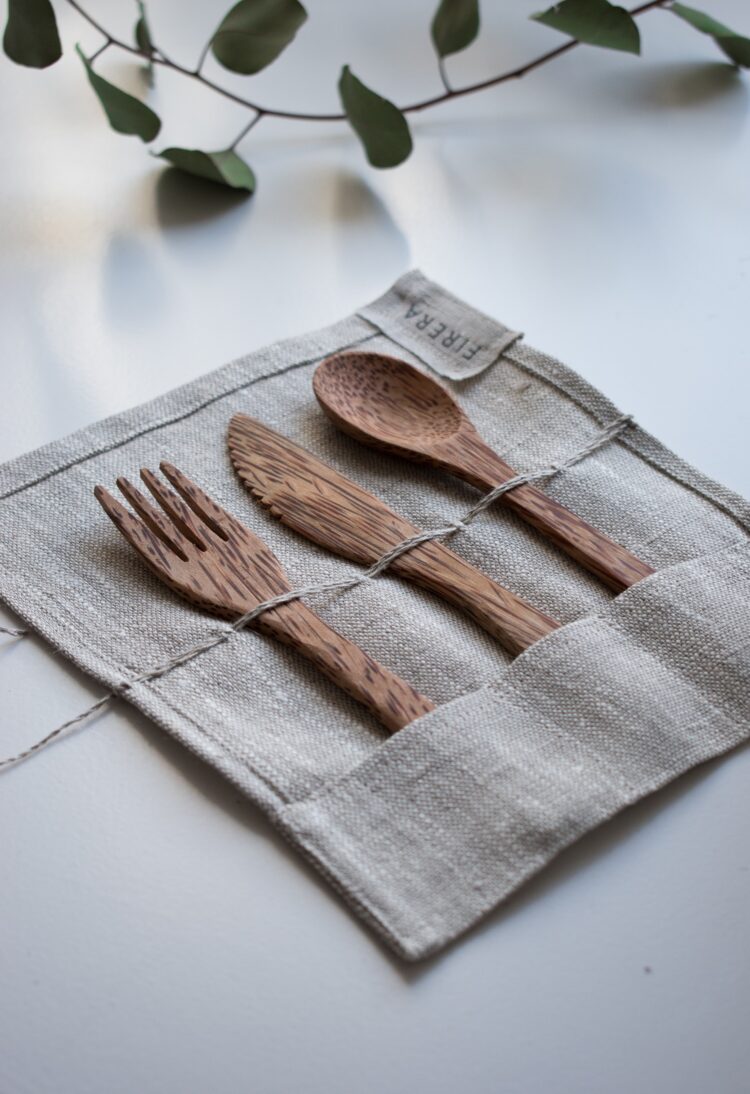


:fill(white):sharpen(0.5,0.5,true)/https://www.oliverbonas.com/static/media/catalog/product/1/3/1302646_2.jpg)













